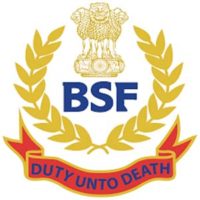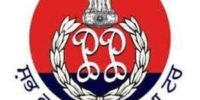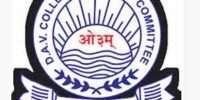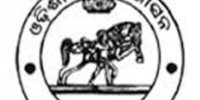BSF Inspector, SI, JE/SI Syllabus 2023 | BSF Inspector (Architect) Syllabus | BSF SI (Works) Syllabus | BSF JE/SI (Electrical) Syllabus | BSF Engineering Wing Syllabus | BSF Engineer Syllabus | BSF SI Exam Syllabus
BSF Inspector, SI, JE/SI Syllabus 2023 | BSF Inspector Syllabus PDF @ www.rectt.bsf.gov.in Syllabus: The Inspector (Architect), Sub-Inspector (Works), Junior Engineer/Sub-Inspector (Electrical) Post Syllabus, Exam Pattern, Mark allotment, Examination structure, etc. may be found on this dashboard by stakeholders who will be attending the Border Security Force (BSF) examination. If you apply for this BSF Engineer Recruitment, visit its official website at www.rectt.bsf.gov.in Engineer syllabus to view the most recent BSF Syllabus and BSF Engineer Exam Pattern. The candidate may prepare for the BSF Engineer wing Exam based on the sort of questions that will be asked after they have knowledge of the BSF Sub-Inspector Works Exam Syllabus PDF & BSF Sub-Inspector Electrical Exam Pattern. You must regularly practice solving them if you want to improve your preparedness. To get more upcoming Central Govt Jobs, click here
BSF Junior Engineer/ Sub-Inspector (Electrical) Syllabus 2023: Preparation Strategy
It is important to have a complete understanding of the exam system and the syllabus of the BSF Engineering Wing Exam that can be accurately understood with the help we have provided in this dashboard. Participants seeking employment with Defence Jobs may take advantage of this chance
- Follow the detailed schedule and stick to it till the entire recruitment process is completed.
- Solve BSF Engineering Wing Previous Year Question Papers to better understand the exam pattern and types of questions asked.
- Develop a habit of reviewing all of your notes to ensure that you remember all the important details for a long time.
- To perform well in the exam, take practice tests to improve your question-solving speed and accuracy, as well as identify your strengths and weaknesses.
| Notification Details | |||||
|---|---|---|---|---|---|
| Recruiter | Border Security Force (BSF) | ||||
| Designation | Inspector (Architect), Sub-Inspector (Works), Junior Engineer/Sub-Inspector (Electrical) | ||||
| Exam Name | Written Exam | ||||
| Job Location | Across India | ||||
| Vacancies/Post | Multiple | ||||
| Official Website | http://www.rectt.bsf.gov.in | ||||
| Join our Telegram | |||||
BSF Engineer wing Exam Pattern | Border Security Force Exam Pattern
Besides that, Exam Pattern for Engineer wing posts is also important to secure the highest marks. So, aspirants have to follow some prescribed study materials. For better clarity on the upcoming BSF exams, applicants should refer to the Exam pattern & Syllabus
Exam Pattern for BSF SI (Works) & JE/SI (Electrical)
Paper 1
| Subjects | Total Question | Total Marks |
| General Awareness | 25 Questions | 25 Marks |
| General Reasoning | 25 Questions | 25 Marks |
| General Engineering | 50 Questions | 50 Marks |
| Total | 100 Questions | 100 Marks |
| Duration: 01 hour & 30 Minutes | ||
Paper 2
| Subject | Nos of Questions | Marks | Duration |
| General Engineering (Civil) for Sub-Inspector (Works) OR General Engineering (Electrical) for JE/SI (Electrical) | 10 out of 12 | 100 Marks | 02 Hours |
BSF Inspector (Architect) Exam Pattern
| Topics | Total Marks | Total Questions |
| General English | 10 | 10 |
| General Awareness | 10 | 10 |
| Reasoning | 10 | 10 |
| Numerical Aptitude | 10 | 10 |
| Technical subject | 60 | 60 |
| Total | 100 Questions | 100 Marks |
BSF SI Exam Syllabus | BSFInspector Exam Syllabus | BSF Junior Engineer Syllabus: Topic Wise
It is important for all the candidates envisioning applying for the exam to get acknowledged with the Syllabus. The syllabus for any examination is a must, as it assists in gauging the importance of exact topics where candidates’ skills are tested
BSF SI (Works) & JE/SI (Electrical) Syllabus
Syllabus for Paper 1
General Intelligence and Reasoning:
- Analogies, similarities, differences, space visualization, problem-solving, analysis, judgments, decision-making, visual memory, discrimination, observation, relationship concepts, arithmetical reasoning, verbal and figure classification, arithmetical number series, etc.
General Awareness:
- The candidate’s overall understanding of his or her surroundings and how it relate to society will be tested through a series of questions.
- Additionally, there will be questions that will test your understanding of current affairs as well as ordinary observation and experience in their scientific context, as would be expected of an educated individual.
- In addition, there will be questions about India and its neighbors, namely on its history, politics, geography, economy, general culture, and scientific research. These inquiries will be made in a way that excludes the need for specialized knowledge in any field.
General Engineering (Civil):
- Building Materials, Estimating, Costing and Valuation, Surveying, Soil Mec Engineering, Transportation Engineering, Environmental engineering.
General Engineering (Electrical): Basic concepts, Circuit law, Magnetic Circuit, AC Fundamentals, Measurement and Measuring instruments, electrical machines, Fractional Kilowatt Motors and single-phase induction motors, Synchronous Machines, Generation, Transmission and Distribution, estimator and Costing, Utilization and Electrical energy, Basic Electronics.
Syllabus for Paper 2
| Post Name | Post & Subject Wise Topics | |
| Sub-Inspector (Works) | Building Materials | Physical and Chemical properties, classification, standard tests, uses, and manufacture/quarrying of materials e.g. building stones, silicate-based materials, cement (Portland), asbestos products, timber, wood-based products, laminates, bituminous materials, paints, varnishes. |
| Estimating, Costing, and Valuation | Estimate, glossary of technical terms, analysis of rates, methods, and unit of measurement, Items of work- earthwork, Brickwork (modular & Traditional bricks), RCC work, Shuttering, Timber work, Painting, Flooring, Plastering. Boundary wall, Brick building, Water tank, Septic tank, Bar bending schedule, Centre line method, Mid-section formula, Trapezoidal formula, Simpson’s rule. Cost estimate of Septic tank, flexible pavements, Tube well, isolates and combined footings, Steel Truss, Piles, and pile-caps. Valuation – value and cost, scrap value, salvage value, assessed value, sinking fund, depreciation and obsolescence, methods of valuation | |
| Surveying | Principles of surveying, measurement of distance, chain surveying, working of prismatic compass, compass traversing, bearing, local attraction, plane table surveying, theodolite traversing, adjustment of theodolite, Levelling Definition of terms used in levelling, contouring, curvature and refraction corrections, temporary and permanent adjustments of dumpy level, methods of contouring, uses of contour map, tachometric survey, curve setting, earth work calculation, advanced surveying equipment. | |
| Soil Mechanics | Origin of soil, phase diagram, Definitions-void ratio, porosity, degree of saturation, water content, specific gravity of soil grains, unit weights, density index and interrelationship of different parameters, Grain size distribution curves and their uses, Index properties of soils, Atterberg’s limits, ISI soil classification and plasticity chart. Permeability of soil, coefficient of permeability, determination of coefficient of permeability, Unconfined and confined aquifers, effective stress, quick sand, consolidation of soils, Principles of consolidation, Degree of consolidation, Pre-consolidation pressure, normally consolidated soil, e-Log p curve, computation of ultimate settlement. Shear strength of soils, Direct shear test, Vane shear test, Triaxial test. Soil compaction, Laboratory compaction test, Maximum dry density and optimum moisture content, earth pressure theories, active and passive earth pressures, Bearing capacity of soils, plate load test, standard penetration test. | |
| Hydraulics | Fluid properties, Hydrostatics, measurements of flow, Bernoulli’s theorem and its application flow through pipes, flow in open channels, weirs, flumes, spillways, pumps and turbines. | |
| Irrigation Engineering | Definition, necessity, benefits, 211 effects of irrigation, types and methods of irrigation, Hydrology – Measurement of rainfall, run off coefficient, rain gauge, losses from precipitation – evaporation infiltration, etc. Water requirement of crops, duty delta and base period, Kharif and Rabi Crops, Command area, Time factor, crop ratio, overlap allowance, Irrigation efficiencies, Different type of canals, types of canal irrigation, loss of water in canals. Canal lining – types and advantages. Shallow and deep to wells, yield from a well. Weir and barrage, Failure of weirs and permeable foundation, Slit and scour, Kennedy’s theory of critical velocity. Lacey’s theory of uniform flow. Definition of flood, causes and effects, methods of flood control, water logging, preventive measure. Land reclamation, Characteristics of affecting fertility of soils, purposes, methods, description of land and reclamation processes. Major irrigation projects in India. | |
| Transportation Engineering | Highway engineering – cross sectional elements, Geometric design, Types of pavements, pavements materials – aggregates and bitumen, different tests, Design of flexible and rigid pavements – Water Bound Macadam (WBM) and wet Mix Macadam (WMM), Gravel Road, Bituminous construction, Rigid pavement joint, pavement maintenance, Highway drainage, Railway Engineering – Components of permanent way – Sleepers, ballast, fixtures and fastening track geometry, points and crossings, track junction, stations and yards. Traffic Engineering – Different traffic survey, Speed-flowdensity and their interrelationships, intersections and interchanges, traffic signals, traffic operation, traffic signs and marking, road safety. | |
| Environmental Engineering | Quality of water, source of water supply, purification of water, distribution of water, need of sanitation, sewerage systems, circular sewer, oval sewer, sewer appurtenances, sewage treatments. Surface water drainage. Solid waste management – types, effects, engineered management system. Air pollution – Pollutants, causes, effects, control. Noise pollution – cause, health effects, control. | |
| Junior engineering Sub-inspector (Electrical) | Basic Concepts | Concepts of resistance, inductance, capacitance and various factors affecting them. Concepts of current, Voltage, Power, energy and their units |
| Circuit Law | Kirchhoff’s law, Simple Circuit solution using network theorems. | |
| Magnetic Circuit | Concepts of flux, mmf, reluctance, Different kinds of magnetic materials, Magnetic calculations for conductors of different configurations e.g. straight, circular, solenoidal, etc. Electromagnetic induction, self, and mutual induction. | |
| AC Fundamentals | Instantaneous, peak, R.M.S. and average values of alternating waves, Representation of sinusoidal wave form, simple series and parallel AC Circuits consisting of R.L. and C, Resonance, Tank Circuit. Poly Phase system -star and delta connection, 3 Phase power, DC and sinusoidal response of R-Land R-C circuit. | |
| Measurement and measuring instruments | Measurement of power (1 phase and 3 phase, both active and re-active) and energy, 2 wattmeter method of 3 phase power measurement. Measurement of frequency and phase angel. Ammeter and voltmeter (both moving oil and moving iron type), extension of range wattmeter, Multi meters, Megger, Energy meter AC Bridges. Use of CRO, Signal Generator, CT, PT and their uses. Earth Fault detection. | |
| Electrical Machines | (a) D.C. Machine – Construction, Basic Principles of D.C. motors and generators, their characteristic, speed control and starting of D.C. Motors. Method of braking motor, Losses and efficiency of D.C. Machines
(b) 1 phase and 3 phase transformers – Construction .Principles of operation, equivalent circuit, voltage regulation, O.C. and S.C. Tests, Losses and efficiency. Effect of voltage, frequency and wave form on losses. Parallel operation of 1 phase / 3 phase transformers. Auto transformers (c) 3 phase induction motors, rotating magnetic field, principle of operation, equivalent circuit, torque-speed characteristics, starting and speed control of 3 phase induction motors. Methods of braking, effect of voltage and frequency variation on torque speed characteristics, starting and speed control of 3 phase induction motors. Methods of braking, effect of voltage and frequency variation on torque speed characteristics. |
|
| Fractional Kilowatt Motors and Single phase Induction Motors | Characteristics and applications. | |
| Synchronous Machines | Generation of 3 phases e.m.f. armature reaction, voltage regulation, parallel operation of two alternators, synchronizing, control of active and reactive power. Starting and applications of synchronous motors. | |
| Generation, Transmission and Distribution | Different types of power stations, Load factor, diversity factor, demand factor, coast of generation, inter-connection of power stations. Power factor improvement, various types of tariffs, types of faults, short circuit current for symmetrical faults. Switchgears – rating of circuits breakers, Principles of arc extinction by oil and air, H.R.C. Fuses, Protection against earth leakage / over current, etc. Buchholtz reply, Merz – Price system of protection of generators & transformers, protection of feeders and bus bars. Lightning arresters, various transmission and distribution system, comparison of conductor materials, efficiency of different system. Cable- Different type of cables, cable rating and derating factor. | |
| Estimation and costing | Estimation of lighting scheme, electric installation of machines and relevant IE rules. Earthing practices and IE rules | |
| Utilization of Electrical Energy | Illumination, Electric heating, Electric welding, Electroplating, Electric drives, and motors | |
| Basic Electronics | Working of various electronic devices e.g. P N Junction diodes, Transistors (NPN and PNP type), BJT, and JFET. Simple circuits using these devices. | |
BSF Inspector (Architect) Syllabus
| Subject | Topic |
|---|---|
| Architecture & Design | Principles of Art and Architecture, visual composition in 2D & 3D, organization of space, computer Graphics, Architectural Graphics, Programming language and automation, Planning and design consideration for different building types, Anthropometries, site planning, Barrier-free design, circulation-horizontal and vertical, space standard, National Buildings Code and Buildings Codes. Elements, Architectural styles, constructions and examples of different periods of Indian & western History of Architecture, Vernacular, Oriental, and Traditional architecture, Architecture developments since the Industrial Revolution; Art nouveau, Eclecticism, International styles, the influence of Revolution; Art nausea, Eclecticism, Internal styles, Influence of modern art on architecture, Post Modernism, Recent trends in Contemporary Architecture, Deconstruction in Architecture works of Renowned national & international architects. |
| Building Materials Construction & Management | Behavioral applications and characteristics of various building materials viz. Mud, bamboo, timber, brick, concrete, glass, steel, FRP, different polymers, AAC, and composites. Building systems and prefabrication of building elements, Building construction techniques, methods and details, Principle of Modular Coordination, Estimation, valuation, specification, professional practice, Project management techniques, Construction planning and equipment e.g. CPM, PERT etc. |
| Building & Structures | Elastic and Limit State design, Principles of the strength of materials, design of structural elements in steel, wood and RCC, Structural systems in RCC and Steel, Principles and design of disaster-resistant structures, Form and Structure, Principles of Pre-stressing, gravity & lateral load resisting systems, High Rise & Long Span structures |
| Environmental Planning & Design | Ecological principles, Concepts of Environmental Impact Analysis, Ecosystem natural and man-made ecosystems, Environmental considerations in planning and design, Principles of architectural acoustics; Green Building- Concepts & Rating, ECBC, Principles of lighting and illumination, Climate responsive design, Thermal comfort, ventilation & air movement Solar architecture, Environmental pollution types, causes, controls and abatement strategies, Building Performance Simulation and Evaluation, Ecosystem-natural and man-made ecosystem,Concepts of Environmental Impact Analysis, Ecological principles, Environmental considerations in planning & design, Principles of lighting and illumination, Thermal comfort, ventilation and air movement, Climate responsive design, Principles of architectural acoustics, Solar architecture, Building Performance, Simulation and Evaluation, Green Building-Concepts and Rating, Environment pollution-causes, types, controls & abatement strategies. |
| Urban Design | Public Perception, Concepts, and theories of urban design, Townscape, Urban design interventions for sustainable development and transportation, Public Realm, Historical and modern examples of urban design, Elements of the urban built environment- urban form, structure, spaces, pattern, texture, fabric, grain, etc, Site planning; Landscape design; Development controls – FAR, densities and building bye-laws, Public spaces, spatial qualities, character, and Sense of Place, Principles, tools & techniques of urban design, Urban renewal & conversation. |
| Urban Planning & Housing | Housing, principles, concepts, and examples of the neighborhood, Affordable Housing, Housing for special areas and needs, Housing typologies, Slums, Residential densities, National Housing Policies, Standards for housing and community facilities, Programs & Schemes. Types of plans- City Development Plan, Master Plan, Structure Plan, Action Area Plan, Zonal Plan, Town Planning Scheme, Planning process, Regional Plan, Salient concepts, principles of urban planning and theories, Emerging concepts of cities-Smart City, Eco-City, SEZ, Transit-Oriented Development (TOD), SRZ, etc. Sustainable urban development |
| Planning Techniques & Management | Decision support system and Land Information System., Graphic presentation of spatial data, Tools, and techniques of Surveys-Topographical, Physical, Land use and Socioeconomic Surveys, Methods of non-spatial & spatial data analysis, Application of G.I.S & Remote Sensing techniques in urban and regional planning. Social, environmental cost-benefit analysis and Economical, Urban Economics, Law of demand and supply of land and its use in planning, Management of Infrastructure Projects, Techniques of financial appraisal, Development guidelines such as URDPFI, Planning Legislation and implementation- Local self-governance, Land Acquisition Act, PPP, etc. |
| Services, Infrastructure & Transportation | governance, Land Acquisition Act, PPP, etc. Services, Infrastructure & Transportation Urban Infrastructure – Water Supply, Transportation, Sewerage, Solid Waste Management, Drainage, Electricity & Communications. Building Services: Sewerage and drainage systems, Water supply, Sanitary fitting and fixtures, Principles of the internal and external drainage systems, Plumbing systems, Principles of electrification of buildings, Elevators and Escalators standards and uses, Intelligent Buildings, Air-Conditioning systems, Building Safety & Security systems, and Firefighting Systems. Water treatment, Principles of water supply and sanitation systems, Water supply and distribution system, Sewage disposal methods, Water harvesting systems, Planning, Principles, and Design of stormwater drainage system, Recycling and Reuse of solid waste, Methods of solid waste management- transportation, collection and disposal, Power Supply and Communications Systems, design, network, and guidelines. Road capacity, Process, and Principles of Transportation Planning and Traffic Engineering, Traffic survey methods, Traffic analyses, and design considerations, Traffic flow characteristics, Travel demand forecasting, Land-transportation, urban form inter-relationships, intersections, Design of roads, grade separators, and parking areas, Traffic & transport management and control in urban areas, Mass transportation planning, Intelligent Transportation Systems, Hierarchy of roads and level of service, Pedestrian and slow-moving traffic planning, and Paratransit and other modes of transportation. |
Method to Download: BSF Engineering Wing Recruitment 2023 Syllabus PDF
- Go to the official website
- On the home page, Go to the syllabus section and click the link to the BSF Syllabus 2023 PDF
- Upon clicking the link, your screen will display the BSF Engineering Wing Recruitment latest syllabus
- The BSF Exam Syllabus 2023 can be downloaded as a PDF for further use by candidates
***BEST OFF LUCK***
We optimism you find this post about BSF Engineering Wing Exam Previous Year Papers edifying and worthwhile. Competitors can now start studying for any competitive, Government, Bank, & Other exams using our Naukrimessenger.com. This website embraces Results, Answer Keys, Salary Structure, Books, Exam patterns, Syllabus, Merit List, Cut Off Marks, Answer Key, Latest Schemes, previous year question papers & Many more
| Important Details |
|---|




